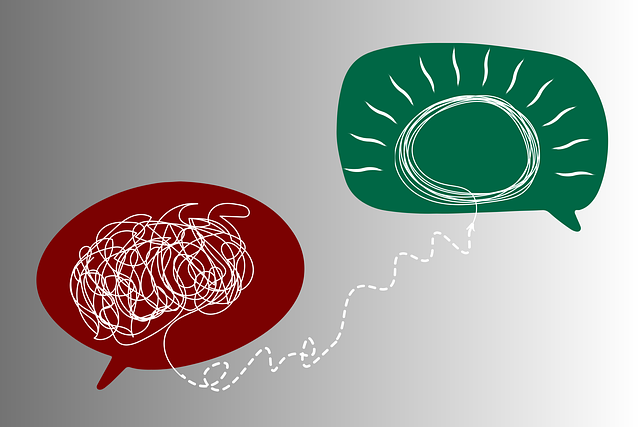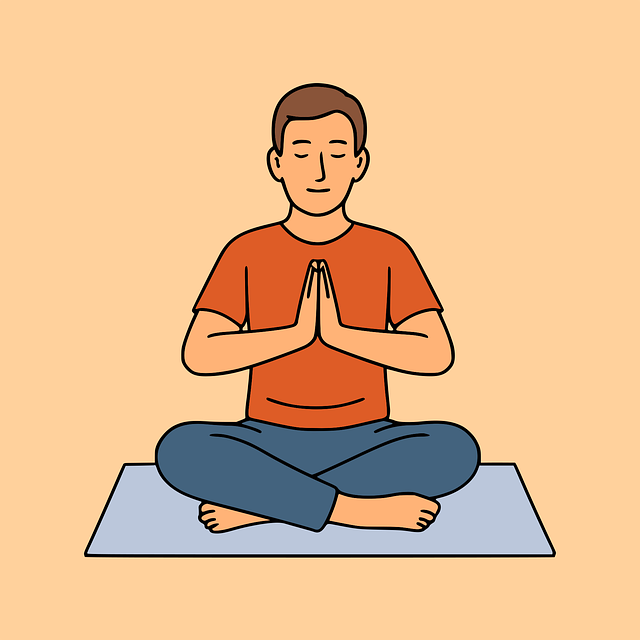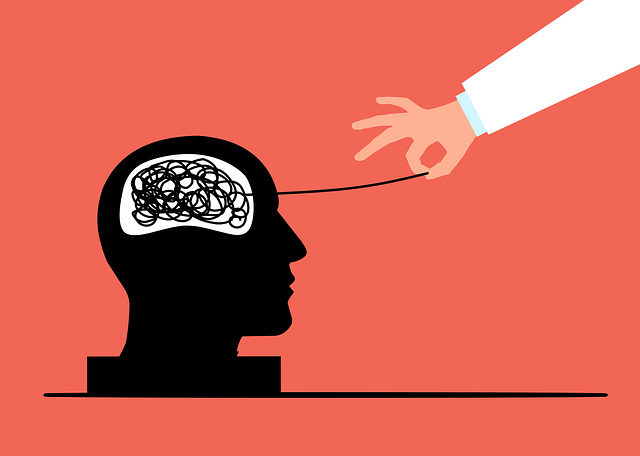Mindfulness meditation is a powerful tool for therapists in Boulder, enhancing client connections, mental wellness coaching, and empathy. By integrating this ancient practice into daily routines, therapists create safe spaces encouraging clients to explore thoughts and emotions without judgment. Regular meditation improves emotional awareness and guidance, fostering meaningful interactions that support clients' well-being. Overcoming challenges through self-reflection and adaptation refines methods, leading to tangible benefits for both practitioners and clients, resulting in more productive therapy sessions and improved overall well-being.
Unwind your mind and discover the power of mindfulness meditation with our comprehensive guide, tailored for therapists and clinicians. In today’s fast-paced world, this ancient practice offers a sanctuary of calm, enhancing both personal well-being and therapeutic outcomes. We explore ‘Understanding Mindfulness Meditation’ as a cornerstone for practitioners, followed by practical tips to seamlessly integrate mindfulness into daily routines. Furthermore, we address challenges and provide strategies to maximize benefits, ensuring therapists in Boulder and beyond can offer transformative care.
- Understanding Mindfulness Meditation: A Foundation for Therapists
- Practical Tips for Incorporating Mindfulness into Daily Practice
- Overcoming Challenges and Maximizing Benefits for Clinicians
Understanding Mindfulness Meditation: A Foundation for Therapists

Mindfulness meditation is a powerful tool for therapists and clinicians seeking to enhance their practice in Boulder therapy. It serves as a foundation for fostering deeper connections with clients, promoting mental wellness coaching programs, and developing empathy-building strategies. By integrating mindfulness into their approach, therapists can create a safe and supportive environment that encourages clients to explore their thoughts and emotions without judgment.
This ancient practice involves focusing on the present moment, cultivating awareness of one’s breath, body sensations, and surroundings. It’s not about clearing the mind but rather observing thoughts and feelings as they arise. Through regular meditation, therapists can improve their own mental wellness journaling exercise guidance, becoming more attuned to their emotions and better equipped to guide clients through their journeys. Empathy is enhanced, allowing for deeper, more meaningful interactions that support overall well-being.
Practical Tips for Incorporating Mindfulness into Daily Practice

Incorporating mindfulness into your daily routine can seem daunting, but with a few practical tips, it becomes an accessible and transformative practice. Start by setting aside just 10-15 minutes each day for meditation; this could be first thing in the morning or before bedtime. Choose a quiet space where you won’t be disturbed, and get comfortable – a simple cross-legged position is best. Focus on your breath, noticing the rise and fall of your chest, without judging or controlling it. When thoughts inevitably arise, gently bring your attention back to your breath.
Consider incorporating mindfulness into everyday activities like walking, eating, or even brushing your teeth. Pay close attention to your senses – what do you see, hear, touch, smell, and taste? This practice enhances present-moment awareness. For added support, explore Stress Management Workshops offered by organizations dedicated to mental well-being. These workshops often provide valuable insights into techniques like conflict resolution and emotional intelligence, which complement mindfulness practices for a holistic approach to Boulder Therapy for Therapists-Clinicians.
Overcoming Challenges and Maximizing Benefits for Clinicians

Overcoming Challenges and Maximizing Benefits for Clinicians is a crucial aspect of successful mindfulness meditation practice guidance in Boulder Therapy for Therapists-Clinicians. Many professionals face challenges such as maintaining focus during meditation, managing distractions, and balancing personal beliefs with evidence-based practices. However, these obstacles can be transformed into opportunities for growth by employing effective strategies. Regular self-reflection and adaptation are key to refining one’s approach, ensuring that each session brings deeper insights and tangible benefits.
Maximizing the benefits of mindfulness meditation requires a holistic integration of techniques within clinical practice. By combining enhanced mental wellness with developed coping skills and improved communication strategies, therapists can create a supportive environment for both themselves and their clients. This not only fosters more productive therapy sessions but also contributes to the overall well-being of practitioners, allowing them to effectively guide others on their journeys towards mindfulness and self-awareness.
Mindfulness meditation, as a powerful tool within Boulder therapy practices, offers clinicians a way to enhance their sessions and support clients’ well-being. By understanding its fundamentals and implementing practical tips, therapists can easily integrate mindfulness into their daily routines. Overcoming challenges with strategies tailored for clinicians allows for maximizing the benefits of this ancient practice, ultimately benefiting both the therapist and their clients in the bustling world of therapy services.














